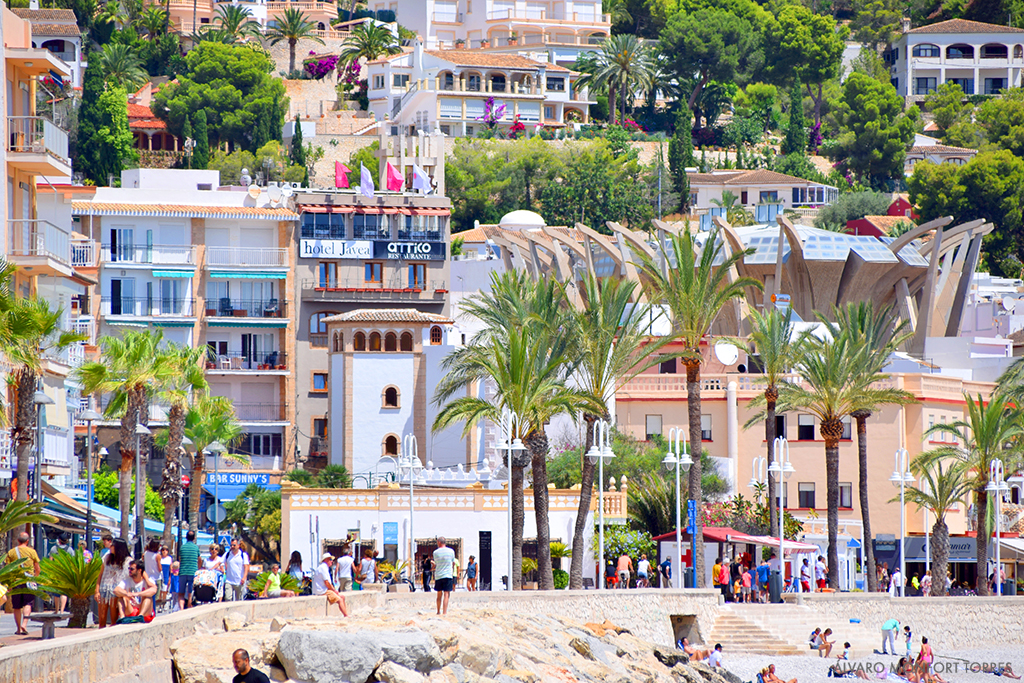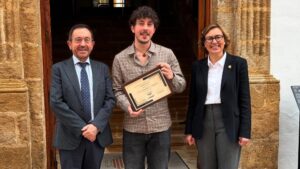Valencia approves new decree to regulate tourist accommodation in the region
The new regulation requires that tourist accommodation comply with the basic principle of hospitality and the rest of the principles that are reflected in the World Code of Ethics for tourism.

FOTO: Alvaro Monfort - Archive image of a summer day in Xàbia before the pandemic.
Tuesday 27th January 2021 | ALVARO MONFORT (Xàbia AL DÍA)
The Generalitat Valenciana has passed the new decree that approves the regulation of tourist accommodation in the Comunidad Valenciana. The objective is to regulate the activities and services of tourist accommodation at an autonomous level, as well as their procedures and classification, operating regime and provision of services; following the provisions of the Tourism, Leisure and Hospitality law.
One of the main changes of the new decree is that it combines, in a single rule, the specific decrees for each type of accommodation in force up to now. Thus, it tries to homogenize the regulation of overlapping issues in each type of accommodation, thus avoiding possible gaps or regulatory gaps by not being specific with each of the possible classifications. Therefore, the regulation of the registration procedure of tourist accommodation in the Tourism Registry is established – in a single rule – thus facilitating access to users and agents of the sector in a single text.
This text also establishes the price regime applicable to tourist accommodation and that of distinctions whilst also introducing the need to have civil liability insurance, according to the type of each tourist accommodation.
Other changes of the decree is that it adds the tourist hostel (without distinction of urban or rural) and the hotel-spa as new types of tourist accommodation. In the case of rural houses with shared accommodation, the new decree remains in accordance with the standard in force today that dictates that users must have access to all common areas.
Also, the new decree grants a period of one year to be able to provide the cadastral reference of the dwelling for tourist use. In this way, this census can be updated with respect to homes that no longer offer a tourist use, specify the location of those that still do and when the floor and door within a building did not appear certain, for example.
On the other hand, the relationship between tourist accommodation and interested persons or entities, both for natural and legal persons, must be carried out by electronic means.
Ethical Code
The new regulation requires that tourist accommodation comply with the basic principle of hospitality and the rest of the principles that are reflected in the World Code of Ethics for tourism and its adaptation to the scope of the Communidad Valenciana through the Code of Ethics for Valencian tourism. Taking this into account, the lodgings should pay special attention to their accessibility, adapting it to the regulation of accessibility in the building and in the public spaces of the regional government.
The tourist rental of only rooms will be illegal.
Marketing and advertising on digital platforms.
The decree makes it clear that the tourist rental of room only in homes will be considered illegal and greater information requirements are established for the advertisement of accommodation on digital platforms. In this way, it is intended to reinforce the role of tourist housing management companies when it comes to being able to carry out their mediation, establishing the obligation that the owner must have the mediator of their accommodation updated.
In addition, the advertising carried out by tourist homes in the Comunidad Valenciana must include the registration number. This fact will be carefully monitored in the event that advertising is carried out through digital pages or social platforms. These channels will be “jointly responsible” for the inclusion of the registration number of each accommodation.
This new regulation has been agreed with the tourist accommodation business organizations of the three provinces and the working groups of the Chambers of Commerce. Its processing slowed down due to confinement and the state of alarm and was resumed after the summer months.
Click below to read the original text of this story on Xàbia AL DIA





